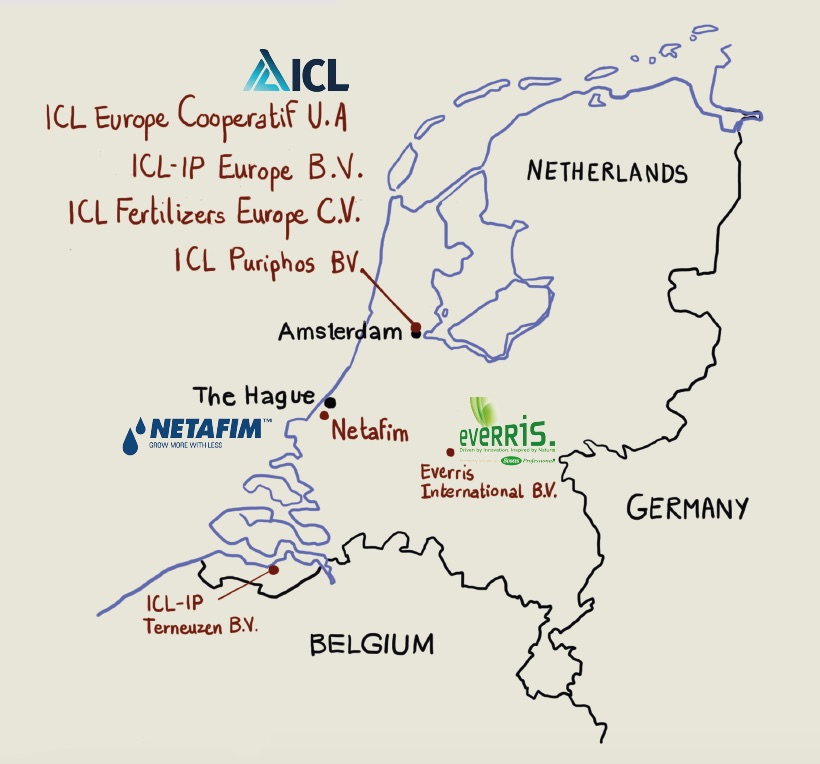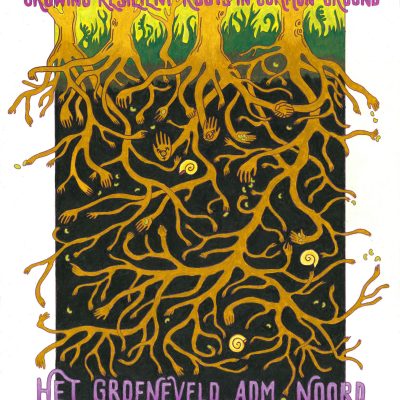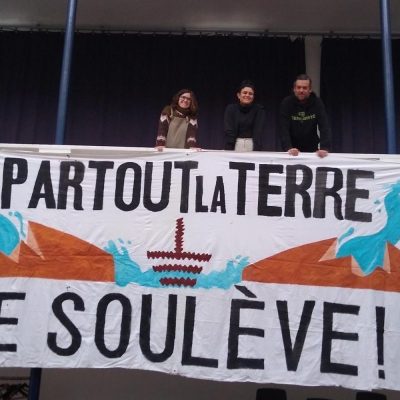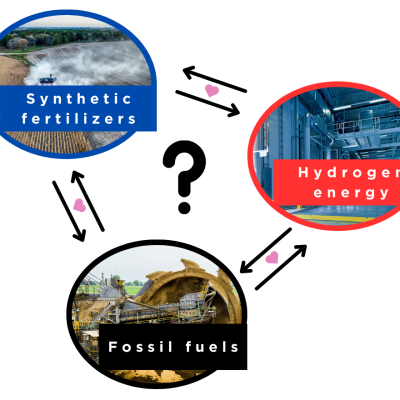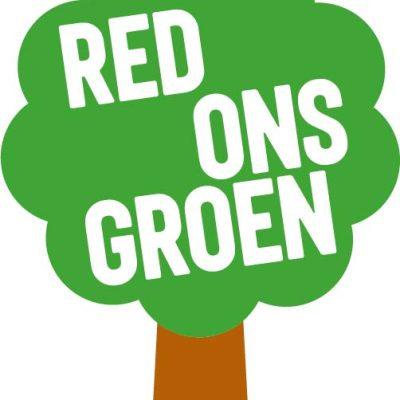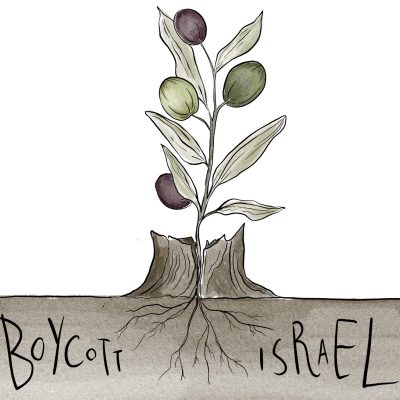Israeli agricultural technology (agritech) is an invisible player in the Israeli illegal occupation of Palestine, and is implicated in the agricultural land grabbing in the occupied West Bank, Gaza Strip and Syrian Golan. Partnerships between Israeli and international agritech corporations and Israeli military and security companies (Elbit, IAI, mPrest Systems) have developed in recent years. Through these partnerships, Israeli agritech firms benefit from the commercialization of Israeli military knowledge.
Military contractors infiltrate civilian markets and further capitalize on occupation and military knowledge, and whitewash / greenwash repressive surveillance and security technologies, while Israeli agritech corporations and their partners position themselves as “green” innovators responding to “the global food crisis”, they further entrench the Israeli Occupation by providing equipment and services to settlement agriculture, diverting resources from Palestinian agriculture and greenwashing the settler colonial project.
Israel controls Palestinian agricultural lands and resources
The Israeli Occupation prevents Palestinians from accessing and cultivating their land. 86% of the occupied Jordan Valley, the main agricultural region in the West Bank, is controlled by the Israeli military and cultivated by illegal settlers. Denied access to their own land, many Palestinians are forced to seek employment in illegal settlement agriculture. Similarly, the Occupation ensures settler access to resources by stealing from the Palestinians. While settlers receive subsidies to extract water from the aquifer in the Occupied West Bank, Syrians in the Golan Syrian pay up to four times what settlers pay for water.
The Phenomics Consortium
The Phenomics Consortium is an Israeli government initiative combining agritech and military (sensor) industries with the aim of expanding / improving large-scale precision agriculture, which uses varied data sources to increase crop yield and maximize profit. A key member of the Consortium is Elbit, Israel’s largest private arms company. Elbit is working here to alter military-grade drones for civilian agricultural use. This greenwashes and whitewashes oppressive surveillance technology deployed in Palestine AND gives Elbit lucrative new market opportunities. For example, Elbit’s Hermes 450 drone is being tested for agricultural purposes. Hermes 450 can carry up to two medium range missiles, flies almost autonomously, and has been deployed in Gaza, Lebanon, and Sudan.
Agritech is active in occupation of Palestine
Agritech companies collaborate with settlement Research & Development (R&D) centers and the Israeli government to further expand settlement agriculture and cement the illegal occupation. The government allocates 20 million NIS annually to agritech companies and subsidizes up to 50% of agritech R&D expenses. R&D centers in the occupied territories receive additional “Boycott grants” to compensate for their ineligibility for international grants due to their illegal location.
The Cormorant
The Cormorant, an unmanned aerial vehicle (UAV) developed by Israeli military aircraft company Tactical Robotics, is being adapted for civilian agricultural use in collaboration with Chinese crop protection company ADAMA. Its extremely high precision / navigation ability is marketed as a strength for herb/pesticide application.
Israel weaponizes herbicide, destroys crops in the Gaza Strip
Israel intentionally destroys Palestinian crops through aerial herbicide spraying. Alongside live military fire, Israel weaponizes herbicides to strengthen its military “buffer zone” in the Gaza Strip, rendering agricultural land both infertile and inaccessible to Palestinians. This “buffer zone” covers 35% of the total agricultural area, including the most fertile lands, in the Gaza Strip.
The EU imports from illegal settlements
Agriculture is the main source of income for Israel’s illegal settlements – 40% of all Israeli date exports are cultivated in occupied Palestine. Despite this, Israel is the main supplier of dates to the Netherlands. In fact, the EU imports 15 times more from illegal settlements than from Palestinian producers. These products are often intentionally mislabeled as a “product of Israel”, thus benefiting from the EU-Israel Association Agreement and entering the EU market with little to no tariffs.
The EU and the Netherlands are partners of the Occupation
The EU is the primary buyer of Israeli agritech, importing 30% of all Israeli exports, and the host of several agritech companies active in Israel’s settler colonial project.
NETAFIM
Netafim is an Israeli precision agriculture – and more specifically, irrigation – corporation. Netafim is active in agricultural experiments on occupied land and with settlement R&D centers. Netafim’s smart irrigation technology, NetBeatTM, features the exact same technology that is used in Iron Dome, Israel’s air/missile defense system. This smart technology, called C41, was developed by mPrest Systems, an Israeli military company focused on monitoring and control solutions.
Israeli Chemicals
Israeli Chemicals (ICL) is an Israeli company that manufactures fertilizers and other chemical products for the agroindustry which is active in agricultural experiments on occupied land and with settlement R&D centers. 2022 revenue: 10 billion USD.
Resources:
Agribusiness as Usual: Agricultural Technology and the Israeli Occupation, Who Profits (2020)
https://www.opensocietyfoundations.org/voices/how-businesses-profit-israeli-settlements
https://www.cbi.eu/market-information/processed-fruit-vegetables-edible-nuts/dates/market-potential
https://www.caabu.org/news/news/new-report-eu-imports-15-times-more-illegal-israeli-settlements-palestinians
https://www.opensocietyfoundations.org/voices/how-businesses-profit-israeli-settlements
https://ps.boell.org/en/2021/08/19/agriculture-palestine




